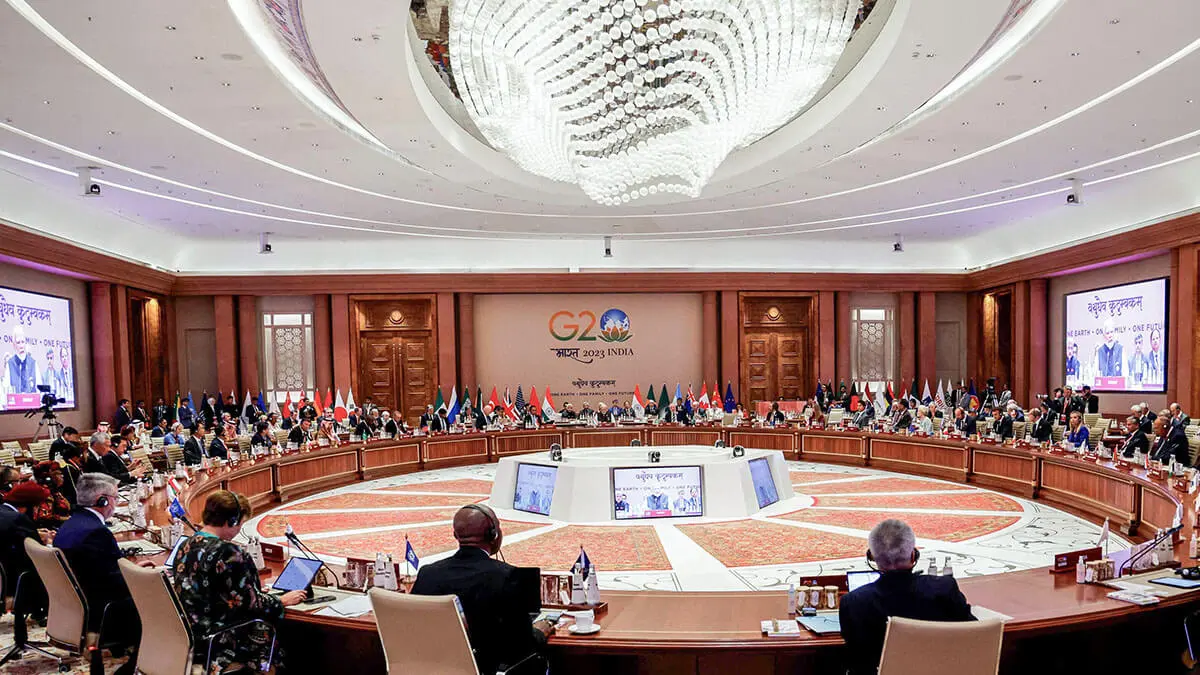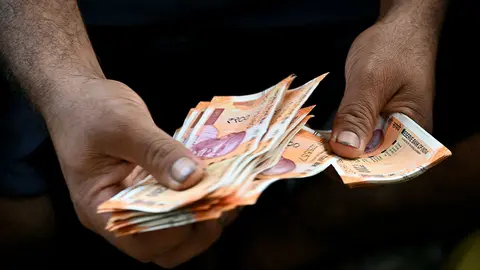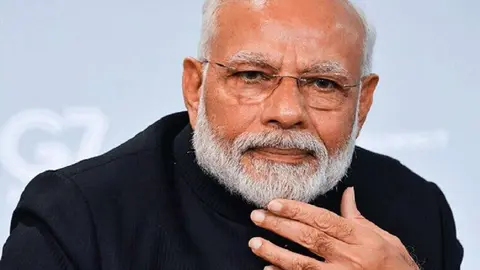India and reformed multilateralism

While, on the one hand, international laws and agreements are adopted to strengthen the rules-based international order, on the other, these are violated with impunity and without accountability.
But the problem goes much deeper. Most developing countries have become bystanders to the collapse of the world order. Their only insurance - universal participation in decision-making - is disappearing. Instead, they are presented with two different, even opposing, worldviews to which they are asked to adhere.
Almost all of today's problems, whether in the UN, the WTO, the IMF or the World Bank, can be traced back to the multilateral system's inability to accommodate the new emerging powers in the post-World War II architecture.
Multilateralism is caught between those fighting to preserve the 1945 "status quo" and those demanding reform to reflect today's more multi-polar realities.
India has been the strongest advocate of strengthening multilateralism over the years. But, in a changed world, if the most populous country and the fifth largest economy, with a track record of multilateralism, democracy and a civilisational ethos of humanity, cannot get its due in global governance, then reform is necessary.
In fact, it was at the 10th annual BRICS summit in 2018 in Johannesburg, South Africa, that Prime Minister Modi first proposed his vision of a "reformed multilateralism" to give major emerging powers a voice in global governance.
India's record in the recent past and its two-year term on the UN Security Council (2021-2022) have many examples, if examples are needed, of how we bridge or overcome differences to build a more inclusive multilateral world.
Faced with global challenges such as polio viruses, climate change, the digital and artificial intelligence divide, terrorism, etc., and the emergence of conflicts that threaten international peace and security, India has become indispensable in finding solutions.
Lest we forget, when the world was reeling under the coronavirus and countries were hoarding vaccines for themselves, it was India that stepped forward to produce and distribute vaccines. For our Vaccine Maitri, we prioritised small and vulnerable countries and saved many lives.
In December 2021, in the UN Security Council (UNSC), we successfully thwarted an initiative to wrest climate change from the inclusive process led by the United Nations Framework Convention on Climate Change (UNFCCC), in which all countries are present, and bring it into the UNSC arena, effectively putting climate action at the mercy of five permanent members (P-5), who are the biggest historical polluters.
India stressed that the draft resolution "seeks to hand over this responsibility to a body that neither works by consensus nor reflects the interests of developing countries". The draft was defeated in a vote, with India voting against it and Russia exercising a veto. Had it gone through, the climate change architecture would have already left out the voice of the Global South, especially the most vulnerable and Small Island Developing States.
Once again, India stood on the side of inclusiveness and multilateralism. In the same vein, India was instrumental in the creation of the International Solar Alliance, which now has 100 member countries.
The G20 is now an influential plurilateral grouping of major economies making decisions on global economic and development issues that affect all other countries as well.
However, a glaring gap was that it was not fully representative of the smaller and medium-sized states of the Global South. To fill this gap, when India assumed the G20 Presidency (2022-23), Prime Minister Modi convened the Voice of the Global South Summit, in which 125 developing countries participated.
The outcomes of the Summit fed into G20 discussions during the Indian presidency, ensuring that the G20 made informed and inclusive decisions that affected the vast majority. In addition, India lobbied for and brought the African Union into the G20, a major step for a continent that has not been adequately represented in the G20, the UNSC or other international bodies.
Needless to add, India has been at the forefront of efforts to reform the UN Security Council. The Security Council deals with conflicts, but its inability to resolve them has become its hallmark. When the UN was created, there were 51 member states. But we still have only five permanent members, which are polarised and have paralysed decision-making in the Council.
Gone are the days when a small group of countries decided what the world should do. The logical consequence of an unreformed Security Council is the emergence of other power centres that challenge it and lead to the fragmentation of the world order. Unless there is legitimate, representative and permanent representation from the Global South, especially the largest country, India, and a continent of 54 countries, Africa, we will not be able to have meaningful decisions in the Council.
Our support for the developing world was strengthened during India's time in the UNSC, where we advocated for territorial integrity, increased humanitarian aid, redressing historical injustices, reform, partnership for development, counter-terrorism and peaceful resolution of disputes.
However, it was India's independent and proactive stance during the Ukraine war that acted as a catalyst to help other developing countries express their discontent with the pursuit of a military solution and call for diplomacy and dialogue, even in the midst of intense fighting and heightened emotions, when all levers were being used as weapons.
In effect, India was saying that we need not choose sides between warring blocs, however large or important they may be. India was saying that we stand for another worldview that seeks the path of dialogue rather than war, that seeks an inclusive world rather than polarisation and fragmentation, that seeks independent policy-making rather than coercion of small and medium states in their decision-making, that seeks territorial integrity rather than occupation, and that seeks reformed multilateralism rather than status quo unilateralism.
T. S. Tirumurti
Former Indian ambassador to Spain and professor at IIT Madras
Article previously published in The Diplomat.



